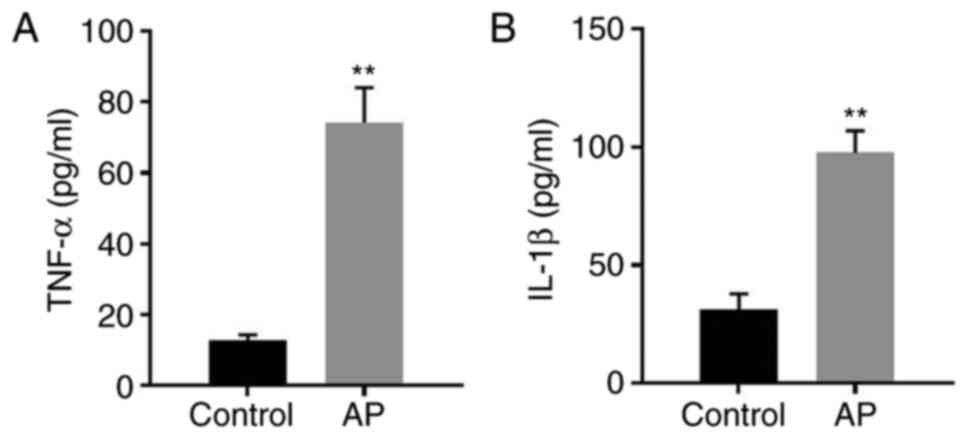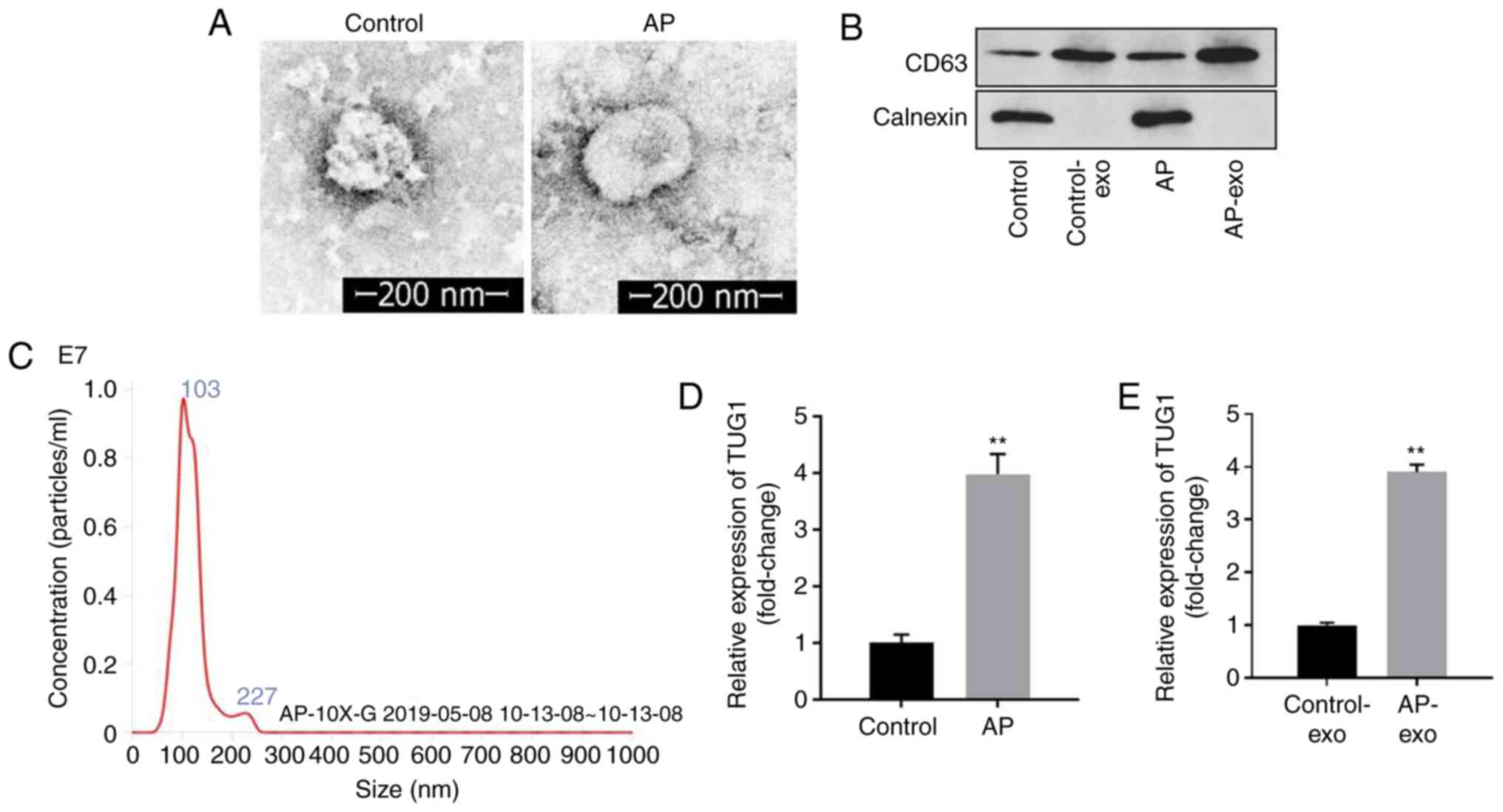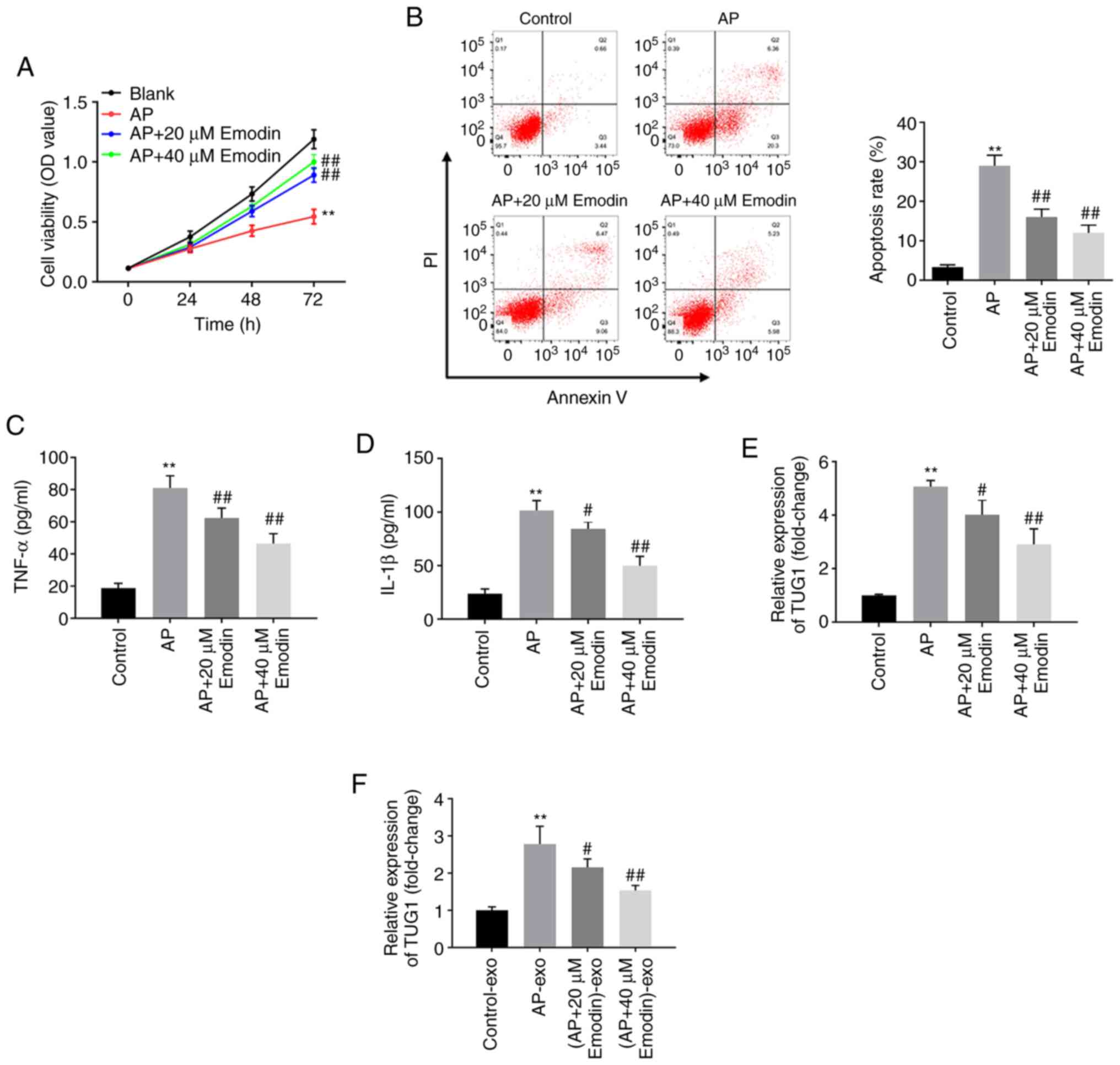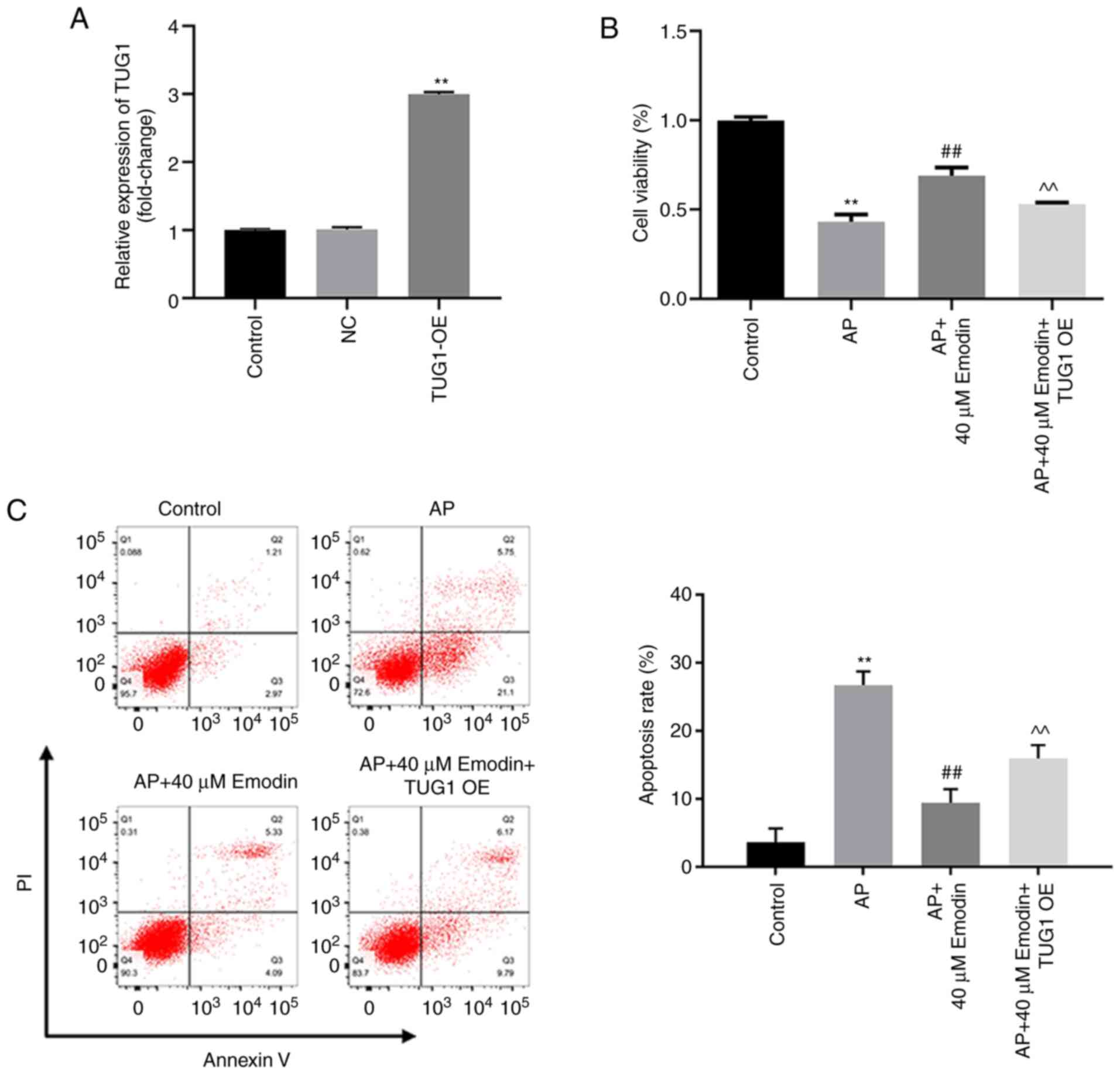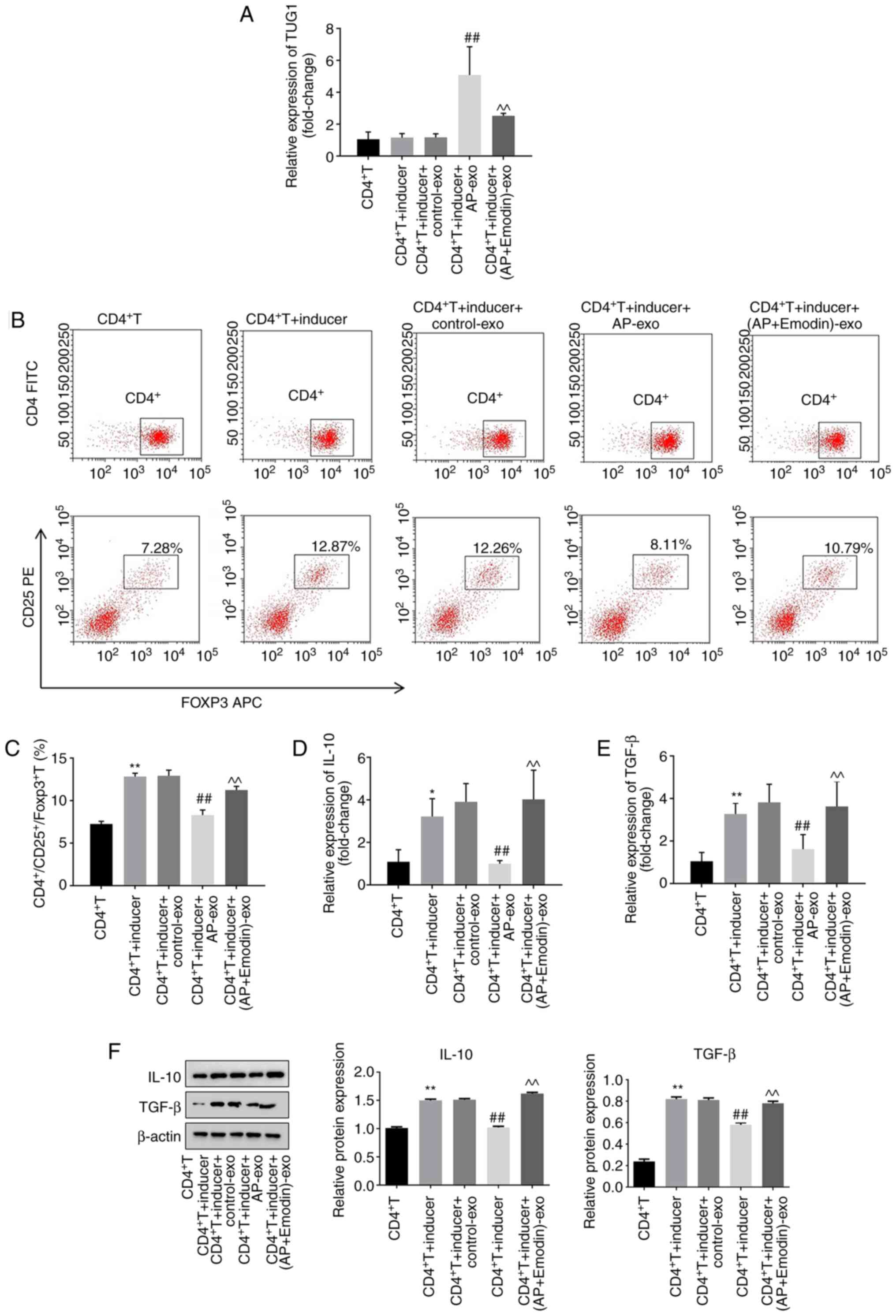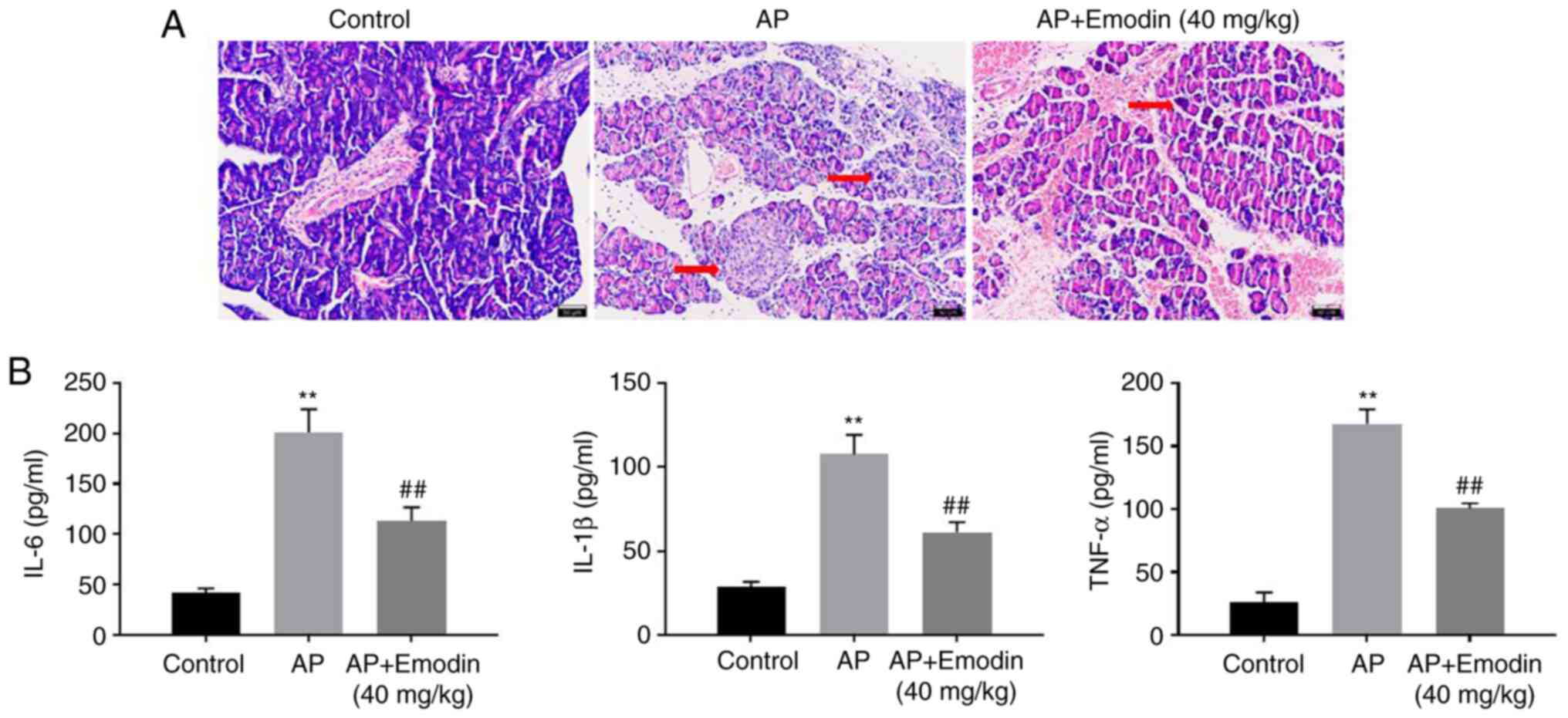|
1
|
Song G, Zhou J, Song R, Liu D, Yu W, Xie
W, Ma Z, Gong J, Meng H, Yang T and Song Z: Long noncoding RNA H19
regulates the therapeutic efficacy of mesenchymal stem cells in
rats with severe acute pancreatitis by sponging miR-138-5p and
miR-141-3p. Stem Cell Res Ther. 11:4202020. View Article : Google Scholar : PubMed/NCBI
|
|
2
|
Numoto I, Tsurusaki M, Oda T, Yagyu Y,
Ishii K and Murakami T: Transcatheter arterial embolization
treatment for bleeding visceral artery pseudoaneurysms in patients
with pancreatitis or following pancreatic surgery. Cancers (Basel).
12:27332020. View Article : Google Scholar : PubMed/NCBI
|
|
3
|
Barreto SG, Habtezion A, Gukovskaya A,
Lugea A, Jeon C, Yadav D, Hegyi P, Venglovecz V, Sutton R and
Pandol SJ: Critical thresholds: Key to unlocking the door to the
prevention and specific treatments for acute pancreatitis. Gut.
70:194–203. 2021. View Article : Google Scholar : PubMed/NCBI
|
|
4
|
Yu B, Li J, Li N, Zhu Y, Chen Y, He W and
Lu N: Progression to recurrent acute pancreatitis after a first
attack of acute pancreatitis in adults. Pancreatology.
20:1340–1346. 2020. View Article : Google Scholar : PubMed/NCBI
|
|
5
|
Ko J, Skudder-Hill L, Cho J, Bharmal SH
and Petrov MS: The relationship between abdominal fat phenotypes
and insulin resistance in non-obese individuals after acute
pancreatitis. Nutrients. 12:e17912021.
|
|
6
|
Kurihara Y, Maruhashi T, Wada T, Osada M,
Oi M, Yamaoka K and Asari Y: Pancreatitis in a patient with severe
coronavirus disease pneumonia treated with Veno-venous
extracorporeal membrane oxygenation. Intern Med. 59:2903–2906.
2020. View Article : Google Scholar : PubMed/NCBI
|
|
7
|
Yang SR, Hsu WH, Wu CY, Shang HS, Liu FC,
Chen A, Hua KF and Ka SM: Accelerated, severe lupus nephritis
benefits from treatment with honokiol by immunoregulation and
differentially regulating NF-κB/NLRP3 inflammasome and sirtuin
1/autophagy axis. FASEB J. 34:13284–13299. 2020. View Article : Google Scholar : PubMed/NCBI
|
|
8
|
Liu L, Lin Z, Zheng B, Wang L, Zou J, Wu
S, Jiang Z, Jin Q, Lai X and Lin P: Reduced intellectual ability in
offspring born from preeclamptic mothers: A Prospective cohort
study. Risk Manag Healthc Policy. 13:2037–2046. 2020. View Article : Google Scholar : PubMed/NCBI
|
|
9
|
Guo R, Li Y, Han M, Liu J and Sun Y:
Emodin attenuates acute lung injury in Cecal-ligation and puncture
rats. Int Immunopharmacol. 85:1066262020. View Article : Google Scholar : PubMed/NCBI
|
|
10
|
Gao Z, Sui J, Fan R, Qu W, Dong X and Sun
D: Emodin protects against acute Pancreatitis-Associated lung
injury by inhibiting NLPR3 inflammasome activation via Nrf2/HO-1
signaling. Drug Des Devel Ther. 14:1971–1982. 2020. View Article : Google Scholar : PubMed/NCBI
|
|
11
|
Sun Z, Xue S, Zhang M, Xu H, Hu X, Chen S,
Liu Y, Guo M and Cui H: Aberrant NSUN2-mediated m5 C
modification of H19 lncRNA is associated with poor differentiation
of hepatocellular carcinoma. Oncogene. 39:6906–6919. 2020.
View Article : Google Scholar : PubMed/NCBI
|
|
12
|
Szikszai K, Krejcik Z, Klema J, Loudova N,
Hrustincova A, Belickova M, Hruba M, Vesela J, Stranecky V, Kundrat
D, et al: LncRNA profiling reveals that the deregulation of H19,
WT1-AS, TCL6, and LEF1-AS1 Is associated with higher-risk
myelodysplastic syndrome. Cancers (Basel). 12:27262020. View Article : Google Scholar : PubMed/NCBI
|
|
13
|
Zhu X, Qin X, Wang X, Wang Y, Cao W, Zhang
J and Chen W: Oral cancer cellderived exosomes modulate natural
killer cell activity by regulating the receptors on these cells.
Int J Mol Med. 46:2115–2125. 2020. View Article : Google Scholar : PubMed/NCBI
|
|
14
|
Zeng J, Chen JY, Meng J and Chen Z:
Inflammation and DNA methylation coregulate the CtBP-PCAF-c-MYC
transcriptional complex to activate the expression of a long
non-coding RNA CASC2 in acute pancreatitis. Int J Biol Sci.
16:2116–2130. 2020. View Article : Google Scholar : PubMed/NCBI
|
|
15
|
Xu K and Zhang L: Inhibition of
TUG1/miRNA-299-3p axis represses pancreatic cancer malignant
progression via suppression of the notch1 pathway. Dig Dis Sci.
65:1748–1760. 2020. View Article : Google Scholar : PubMed/NCBI
|
|
16
|
Gao Q, Fang X, Chen Y, Li Z and Wang M:
Exosomal lncRNA UCA1 from cancer-associated fibroblasts enhances
chemoresistance in vulvar squamous cell carcinoma cells. J Obstet
Gynaecol Res. 47:73–87. 2020. View Article : Google Scholar : PubMed/NCBI
|
|
17
|
Zhang X, Gong W, Cao S, Yin J, Zhang J,
Cao J and Shen Y: Comprehensive Analysis of Non-coding RNA profiles
of exosome-like vesicles from the protoscoleces and hydatid cyst
fluid of echinococcus granulosus. Front Cell Infect Microbiol.
10:3162020. View Article : Google Scholar : PubMed/NCBI
|
|
18
|
Wang D, Xing N, Yang T, Liu J, Zhao H, He
J, Ai Y and Yang J: Exosomal lncRNA H19 promotes the progression of
hepatocellular carcinoma treated with Propofol via
miR-520a-3p/LIMK1 axis. Cancer Med. 9:7218–7230. 2020. View Article : Google Scholar : PubMed/NCBI
|
|
19
|
Yuan Z, Yang Z, Li W, Wu A, Su Z and Jiang
B: Exosome-mediated transfer of long noncoding RNA HOTAIR regulates
temozolomide resistance by miR-519a-3p/RRM1 axis in glioblastoma.
Cancer Biother Radiopharm. Jul 24–2020.(Epub ahead of print).
View Article : Google Scholar
|
|
20
|
Wu XB, Sun HY, Luo ZL, Cheng L, Duan XM
and Ren JD: Plasma-derived exosomes contribute to
pancreatitis-associated lung injury by triggering NLRP3-dependent
pyroptosis in alveolar macrophages. Biochim Biophys Acta Mol Basis
Dis. 1866:1656852020. View Article : Google Scholar : PubMed/NCBI
|
|
21
|
Yang L, Chen S, Zhao Q, Sun Y and Nie H:
The critical role of Bach2 in shaping the balance between
CD4+ T cell subsets in immune-mediated diseases.
Mediators Inflamm. 2019:26097372019. View Article : Google Scholar : PubMed/NCBI
|
|
22
|
Qiao Y, Chen J, Ma C, Liu Y, Li P, Wang Y,
Hou L and Liu Z: Increased KIF15 expression predicts a poor
prognosis in patients with lung adenocarcinoma. Cell Physiol
Biochem. 51:1–10. 2018. View Article : Google Scholar : PubMed/NCBI
|
|
23
|
Guo J, Li Z, Tang D and Zhang J: Th17/Treg
imbalance in patients with severe acute pancreatitis: Attenuated by
high-volume hemofiltration treatment. Medicine (Baltimore).
99:e214912020. View Article : Google Scholar : PubMed/NCBI
|
|
24
|
Wang D, Tang M, Zong P, Liu H, Zhang T,
Liu Y and Zhao Y: miRNA-155 regulates the Th17/Treg ratio by
targeting SOCS1 in severe acute pancreatitis. Front Physiol.
9:6862018. View Article : Google Scholar : PubMed/NCBI
|
|
25
|
He Y, Li M, Wujisiguleng, Lv B, Huan Y,
Liu B, Wang D, Yu H, Zhang L and Shi Z: Zhenbao Pill reduces Treg
cell proportion in acute spinal cord injury rats by regulating
TUG1/miR-214/HSP27 axis. Biosci Rep. 38:BSR201808952018. View Article : Google Scholar : PubMed/NCBI
|
|
26
|
Shen Y, Xue CJ, You GL and Liu C: miR-9
alleviated the inflammatory response and apoptosis in
caerulein-induced acute pancreatitis by regulating FGF10 and the
NF-κB signaling pathway. Exp Ther Med. 22:7952021. View Article : Google Scholar : PubMed/NCBI
|
|
27
|
Zhang KK, Yu SS, Li GY, He L and Liang XQ:
miR-135a deficiency inhibits the AR42J cells damage in
cerulein-induced acute pancreatitis through targeting FAM129A.
Pflugers Arch. 471:1519–1527. 2019. View Article : Google Scholar : PubMed/NCBI
|
|
28
|
Xu C, Luo Y, Ntim M, Quan W, Li Z, Xu Q,
Jiang L, Zhang J, Shang D, Li L, et al: Effect of emodin on long
non-coding RNA-mRNA networks in rats with severe acute
pancreatitis-induced acute lung injury. J Cell Mol Med.
25:1851–1866. 2021. View Article : Google Scholar : PubMed/NCBI
|
|
29
|
Zhao JY, Wang JQ, Wu L, Zhang F, Chen ZP,
Li WD, Cai H and Liu X: Emodin attenuates cell injury and
inflammation in pancreatic acinar AR42J cells. J Asian Nat Prod
Res. 21:186–195. 2019. View Article : Google Scholar : PubMed/NCBI
|
|
30
|
Livak KJ and Schmittgen TD: Analysis of
relative gene expression data using real-time quantitative PCR and
the 2(-Delta Delta C(T)) method. Methods. 25:402–408. 2001.
View Article : Google Scholar : PubMed/NCBI
|
|
31
|
Guo Z, Wang X, Yang Y, Chen W, Zhang K,
Teng B, Huang C, Zhao Q and Qiu Z: Hypoxic Tumor-derived exosomal
long noncoding RNA UCA1 promotes angiogenesis via miR-96-5p/AMOTL2
in pancreatic cancer. Mol Ther Nucleic Acids. 22:179–195. 2020.
View Article : Google Scholar : PubMed/NCBI
|
|
32
|
Jiang X, Li X, Zheng S, Du G, Ma J, Zhang
L, Wang H and Tian J: Comparison study of different indoleamine-2,3
dioxygenase inhibitors from the perspective of pharmacodynamic
effects. Int J Immunopathol Pharmacol. 34:20587384209505842020.
View Article : Google Scholar : PubMed/NCBI
|
|
33
|
Fiori A, Uhlig S, Kluter H and Bieback K:
Human adipose tissue-derived mesenchymal stromal cells inhibit CD4+
T cell proliferation and induce regulatory T cells as well as CD127
expression on CD4+CD25+ T cells. Cells.
10:582021. View Article : Google Scholar : PubMed/NCBI
|
|
34
|
Wang XD, Yu WL and Sun Y: Activation of
AMPK restored impaired autophagy and inhibited inflammation
reaction by up-regulating SIRT1 in acute pancreatitis. Life Sci.
277:1194352021. View Article : Google Scholar : PubMed/NCBI
|
|
35
|
Xiang H, Guo F, Tao X, Zhou Q, Xia S, Deng
D, Li L and Shang D: Pancreatic ductal deletion of S100A9
alleviates acute pancreatitis by targeting VNN1-mediated ROS
release to inhibit NLRP3 activation. Theranostics. 11:4467–4482.
2021. View Article : Google Scholar : PubMed/NCBI
|
|
36
|
Dai J, He Y, Jiang M, Niu M, Li B, Wu Z,
Bao J, Wen L, Wang X and Hu G: Reg4 regulates pancreatic
regeneration following pancreatitis via modulating the Notch
signaling. J Cell Physiol. Apr 26–2021.(Epub ahead of print).
View Article : Google Scholar
|
|
37
|
Lin HW, Lee YJ, Yang DJ, Hsieh MC, Chen
CC, Hsu WL, Chang YY and Liu CW: Anti-inflammatory effects of flos
lonicerae japonicae water extract are regulated by the STAT/NF-κB
pathway and HO-1 expression in Virus-infected RAW264.7 cells. Int J
Med Sci. 18:2285–2293. 2021. View Article : Google Scholar : PubMed/NCBI
|
|
38
|
Esmail MM, Saeed NM, Michel HE and El-Naga
RN: The ameliorative effect of niclosamide on bile duct ligation
induced liver fibrosis via suppression of NOTCH and Wnt pathways.
Toxicol Lett. 347:23–35. 2021. View Article : Google Scholar : PubMed/NCBI
|
|
39
|
Xu C, Zhang J, Liu J, Li Z, Liu Z, Luo Y,
Xu Q, Wang M, Zhang G, Wang F and Chen H: Proteomic analysis
reveals the protective effects of emodin on severe acute
pancreatitis induced lung injury by inhibiting neutrophil proteases
activity. J Proteomics. 220:1037602020. View Article : Google Scholar : PubMed/NCBI
|
|
40
|
Xia S, Ni Y, Zhou Q, Liu H, Xiang H, Sui H
and Shang D: Emodin attenuates severe acute pancreatitis via
antioxidant and anti-inflammatory activity. Inflammation.
42:2129–2138. 2019. View Article : Google Scholar : PubMed/NCBI
|
|
41
|
Luo S, Deng X, Liu Q, Pan Z, Zhao Z, Zhou
L and Luo X: Emodin ameliorates ulcerative colitis by the
flagellin-TLR5 dependent pathway in mice. Int Immunopharmacol.
59:269–275. 2018. View Article : Google Scholar : PubMed/NCBI
|
|
42
|
Chen X and Song D: LncRNA MEG3
participates in caerulein-induced inflammatory injury in human
pancreatic cells via regulating miR-195-5p/FGFR2 axis and
inactivating NF-κB pathway. Inflammation. 44:160–173. 2021.
View Article : Google Scholar : PubMed/NCBI
|
|
43
|
Tang Y, Hu J, Zhong Z, Liu Y and Wang Y:
Long noncoding RNA TUG1 promotes the function in ox-LDL-treated
HA-VSMCs via miR-141-3p/ROR2 axis. Cardiovasc Ther.
2020:67589342020. View Article : Google Scholar : PubMed/NCBI
|
|
44
|
Pei Y, Li K, Lou X, Wu Y, Dong X, Wang W,
Li N, Zhang D and Cui W: miR1299/NOTCH3/TUG1 feedback loop
contributes to the malignant proliferation of ovarian cancer. Oncol
Rep. 44:438–448. 2020. View Article : Google Scholar : PubMed/NCBI
|
|
45
|
Zhang C, Zhang C, Xu Y, Li C, Cao Y and Li
P: Exosomes derived from human placenta-derived mesenchymal stem
cells improve neurologic function by promoting angiogenesis after
spinal cord injury. Neurosci Lett. 739:1353992020. View Article : Google Scholar : PubMed/NCBI
|
|
46
|
Colucci M, Ruggiero B, Gianviti A, Rosado
MM, Carsetti R, Bracaglia C, De Benedetti F, Emma F and Vivarelli
M: IgM on the surface of T cells: A novel biomarker of
pediatric-onset systemic lupus erythematosus. Pediatr Nephrol.
36:909–916. 2021. View Article : Google Scholar : PubMed/NCBI
|
|
47
|
Matikainen S, Nyman TA and Cypryk W:
Inflammasomes: Exosomal miRNAs loaded for action. J Cell Biol.
219:e2020081302020. View Article : Google Scholar : PubMed/NCBI
|
|
48
|
Elashiry M, Elashiry MM, Elsayed R,
Rajendran M, Auersvald C, Zeitoun R, Rashid MH, Ara R, Meghil MM,
Liu Y, et al: Dendritic cell derived exosomes loaded with
immunoregulatory cargo reprogram local immune responses and inhibit
degenerative bone disease in vivo. J Extracell Vesicles.
9:17953622020. View Article : Google Scholar : PubMed/NCBI
|
|
49
|
Wang N, Ma J, Ren Y, Xiang S and Jia R:
Secreted klotho from exosomes alleviates inflammation and apoptosis
in acute pancreatitis. Am J Transl Res. 11:3375–3383.
2019.PubMed/NCBI
|
|
50
|
Salminen A, Kaarniranta K and Kauppinen A:
Exosomal vesicles enhance immunosuppression in chronic
inflammation: Impact in cellular senescence and the aging process.
Cell Signal. 75:1097712020. View Article : Google Scholar : PubMed/NCBI
|















